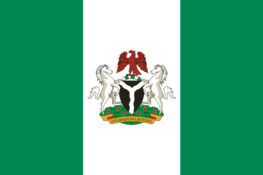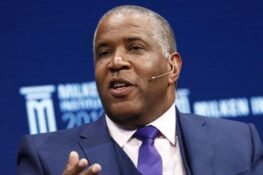Make no mistake about it. Nigeria is the rape capital of the world.
Oh, you thought it was South Africa, followed closely by India? Well, I thought so, too. South Africa is said to have 132.4 per 100,000 and about 100,000 cases yearly, according gazettereview.com, in their 2017 list.
A country like Botswana which came second after South Africa is said to have nearly 10 per cent of her population raped during their lives. Of course those in Botswana fare slightly better than South Africa at 92.9 per 100,000 reported rape cases per year. I’m still surprised that India didn’t feature in the first 10.
But even without the grim statistics, the horrible rape stories that keep coming from countries such as South Africa and India have always sufficed to keep them permanently in one’s subconscious as the official world headquarters of sexual violence. But you see, records are just that: records. Someone has to keep count for records to happen and we all know that keeping records isn’t one of our strengths in this country.
We prefer to count looted funds. But I digress…
When Mirabel Centre, the first Sexual Assault Referral Centre in Nigeria, reported that they saw more 1,200 clients between July 1, 2013 when they opened and January 2016, one should have realised that we’re dealing with an epidemic because the statistics averaged more than one rape victim daily. Remember we’re talking about one small centre in Ikeja, Lagos State.
Did I also mention that the youngest client at the Centre was four months and the oldest 70 years old during this period?
But how did I know that Nigeria has probably floored India and South Africa in the sexual violence department? It took the efforts one beautiful angel in the mould of a Nigerian woman living in the UK to open my eyes.
This angel who goes by the Facebook name, Olu Bunmi (Jopasdaughter), innocently started a rape series on her Facebook page and since then it’s been raining tears and blood on her wall with the rape stories coming in torrents.
Many of the women who shared their stories were raped in their childhood and teenage years, and had borne their pain, sorrow and shame alone for years till Olu Bunmi’s uncommon intervention on Facebook.
There are two major obvious features in the stories: the ability of the rapists to force the victims into silence, sometimes even without physical threats, and the anticipated stigma that ensures that horror stories are not shared with anybody, including parents.
Hopefully, with the sharing of these stories now, and also taking advantage of the present help, true healing can begin for many of them.
But we need to examine why this rape culture has always thrived in our society.
I believe that, that same entitlement mentality our society continuously encourages in our male children, even right from the womb, also plays a role here.
That’s why we see boys rape their younger female relatives when they were younger and still, years later, boldly look at their victims in the eyes and expect and even demand normal relationships because they’re family (whatever that means).
Forget whatever they tell you; they aren’t sorry. Rather, from where they were standing, it was there for their taking and they did just that; take it!
A friend who was sexually abused by her two older cousins for many years while she lived with them was beyond belief when, one day, after she had left the house and got married one of the villains was demanding that he wanted to spend some time in her home.
Shamelessness doesn’t even begin to describe such, but he couldn’t have been ashamed for his ignoble actions because somewhere in his tiny but unduly entitled brain, he didn’t do anything wrong. She was available for their taking, probably like a bowl of dessert a mother would keep in the family fridge, and their mother wouldn’t be upset if her children helped themselves to it whenever they felt like.
The prevalent Rape and Beg syndrome is also a major culprit and those villains know this only too well. So they will rape and afterwards assemble their religious leaders and ancestors to come beg their victims’ religious leaders and ancestors and all is forgiven.
Recently (August 9, 2017), Media Concern Initiative for Women and Children secured a two-year sentence for a rape case that had been in court for seven long years. The victim who was four years when the rapist struck is now 11!
According to Princess Olufemi-Kayode, her organisation was able to succeed because the victim’s father didn’t give up even when everyone else, including his immediate family, wanted him to. Apparently, the Rape and Beg technique didn’t work with him.
But how many fathers, mothers and the victims themselves would be this strong?
Let’s not even go near the holes in our justice system because we can talk about it from now till President Buhari comes back from his next medical vacation in London and nothing will happen.
In the end what we’re left with are pockets of individual efforts coordinated by different not-for-profit organisations whose members work tirelessly to ensure justice and succour for the victims. But what facilities are out there to cater for rape victims round the clock?
I know the Mirabel Centre just celebrated its fourth anniversary, but wasn’t it just months ago that it was struggling to keep its doors open due to lack of funding?
Like the BAOBAB for Women’s Human Rights’ sticker I used to own says: “There are no words for rape, only sentences.”
But we need to start handing out those sentences now, and lengthy ones at that.








